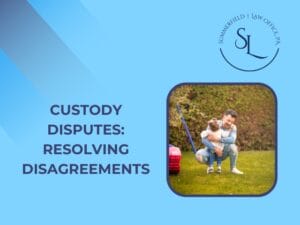If you have had the opportunity to engage in meaningful estate planning with an experienced Riverview Estate Planning Attorney, then you should be aware of what the probate process is and when it is required.
If you’re just starting to explore the various facets of estate planning, you may be new to the idea of probate.
Probate is a requirement to validate an otherwise valid will through a court-supervised process upon a person’s death.
Probate is also required if there is no valid will in place when a person dies to ensure that all assets are distributed according to Florida law regarding intestate succession, the legal term for a person dying without a valid will. The duration and cost of probate depends on numerous individual factors, but there are ways that you can reduce the cost of probate for you and your loved ones if you plan appropriately.
If I have a valid will, will my loved ones still need to go through probate?
While having a valid will in place is an important step in creating a comprehensive estate plan, a will is still legally subject to the probate process. The assets left in your estate will be used to pay for the probate process, and the process in turn will be used to settle outstanding debts and distribute your remaining assets according to your wishes. When you create your will, you may not have all of the information you need to ensure that your assets are free from probate, and maintaining an updated will is an important way to protect yourself and your loved ones. For instance, you and your spouse may have another child after your will is created. Many years later, you may wish to share your assets with grandchildren, or nieces and nephews. Sometimes, you may not have the chance to amend your will according to the process required by Florida law. In such cases, assets not protected from the probate process will still need to go through court-supervised probate.
How can I reduce the cost of probate?
Assets subject to probate are basically only those owned solely by the decedent at the time of his or her death. In other words, they are assets that are listed as being owned only by the decedent with no designated beneficiary in case of the decedent’s death. One way to avoid probate costs surrounding these assets is to ensure that financial accounts are designated to a specific person in case of death, and that they are not simply designated to your estate. In this way, such accounts can avoid the probate process.
Another way to reduce probate costs is to ensure that property that is jointly owned carries with it the right of survivorship for the co-owner. In other words, if you and your spouse own a home, you need to be sure that such co-ownership automatically allows that property to pass to the surviving spouse without the need for probate at the time of one of the spouse’s death. An experienced estate planning attorney can help you best understand this type of ownership arrangement.
Creating a living trust in which you place certain assets during your lifetime can also help avoid probate and, consequently, reduce related probate costs. While trusts may have a reputation of being for wealthy families or individuals, they are actually quite sensible solutions for much of the population regardless of the size of your estate or assets during your lifetime or at the time of your death.
Another way to avoid probate costs is to choose to distribute probate assets prior to one’s death. While this is not always practical, there are some circumstances in which doing so may make sense for you. If you choose to distribute assets in this way, it is important to make sure that you speak with an experienced estate planning attorney to ensure that such gifts are properly accounted for in other aspects of your estate plan.
In some cases, Florida law also allows what is referred to as disposition of personal property without administration. This is generally only applicable to very small estates and will allow an estate to be distributed without going through the probate process. Laws governing the size and amount of an estate that may be eligible can be found here, and an experienced estate planning attorney can help you decide whether or not this exception to probate applies to you.
I want to make sure my estate plan is prepared in a way that reduces probate costs – how do I do that?
While you may be able to avoid some of the costs associated with probate, there are numerous other fees and costs associated with the estate process. Summerfield Law Office can walk you through what individual costs may apply to you, and can help you effectively plan for those costs. There are numerous things to consider in estate planning, ranging from inheritance taxes to legal filing fees and beyond. We can review an estate plan that you have in place, and work with you to modify it or prepare one from the beginning. Contact us today for more information about how a comprehensive estate plan can help ensure you and your family are protected and covered, and to see how you can reduce probate’s financial burden your loved ones.






